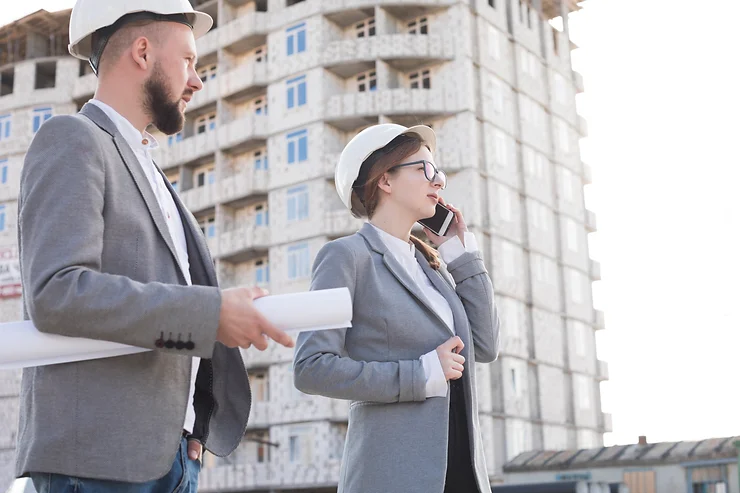Revitalising Leeds: How Property Investments are Shaping the City’s Future

Captivating Start
Leeds, a vibrant city in the heart of Yorkshire, has undergone a remarkable transformation, largely fueled by strategic property investments. Once an industrial powerhouse, the city has evolved into a modern urban hub, blending rich historical heritage with contemporary living. This evolution is particularly evident in the realm of rental properties in Leeds, which have become a cornerstone for urban revitalisation.
The city’s landscape, now dotted with sleek residential complexes and refurbished historical buildings, tells a story of progress and potential. As we delve deeper into this narrative, it’s clear that property investment has not only reshaped Leeds’ skyline but also redefined its future.
Leeds’ Property Investment Journey
Leeds’ journey in property investment is a tapestry of strategic evolution and adaptive change. Historically, the city’s industrial roots laid a foundation for early residential and commercial developments. Post-industrial era, Leeds witnessed a shift towards service-oriented industries, prompting a surge in office and retail space construction.
The early 2000s marked a significant milestone with the development of upscale apartments and regeneration of the city center, attracting both domestic and international investors. Recent years have seen a keen focus on sustainable living spaces and tech-centric commercial properties, aligning with modern demands. These pivotal changes underscore Leeds’ dynamic approach to property investment, shaping its identity as a flourishing urban center.
Current Trends in Leeds’ Property Market
The current trends in Leeds’ property market reflect a dynamic and forward-looking city. A significant trend is the rise in demand for rental properties, fueled by a growing young professional and student population. This demand has spurred a need for effective rental property management, ensuring high-quality living standards and tenant satisfaction. Popular areas for investment include the city center and upcoming neighborhoods around tech hubs and universities, where modern apartments and co-living spaces are in high demand.
Moreover, there’s an increasing interest in properties that offer a blend of urban convenience and green spaces, catering to a demographic that values sustainability alongside modern amenities. These trends are pivotal in driving Leeds’ property market towards a future of growth and innovation
Case Examples
Leeds’ landscape has been profoundly shaped by several notable property investment projects, each a testament to the city’s dynamic growth. A prime example is the South Bank project, transforming the former industrial heartland into a thriving mixed-use development. It’s not just about new buildings; it’s about creating a community, blending residential, commercial, and cultural spaces, revitalising the area while preserving its rich history.
Another landmark project is the Leeds Dock revitalisation. Once a neglected waterfront area, it’s now a bustling hub for digital and creative industries, thanks to strategic real estate bond investments. This project has not only enhanced the city’s economic profile but also provided a much-needed facelift to the docklands, attracting both locals and tourists.
Lastly, the redevelopment of the Victoria Gate shopping area exemplifies how modern retail spaces can coexist with Leeds’ Victorian architectural heritage, offering a unique shopping experience while boosting the city’s retail attractiveness.
These case examples highlight how thoughtful property investments can significantly impact a city’s landscape, turning underused areas into vibrant, functional spaces.
Economic Implications
Property investments in Leeds have catalysed significant economic growth. The influx of capital from these investments has been a key driver in job creation, particularly in construction, property deal sourcing, and related sectors. As new properties emerge and older ones are rejuvenated, the demand for skilled labor, from architects to home renovation project managers, surges.
This growth extends beyond construction, stimulating local businesses and services. Retail and hospitality sectors, in particular, have seen a boost, benefiting from increased foot traffic in revitalised areas. These investments have thus not only transformed the city’s physical landscape but also bolstered its economic vitality.

Social and Cultural Effects
The social and cultural landscape of Leeds has been profoundly influenced by property investments. These investments have played a crucial role in community development, providing new public spaces, housing, and amenities that cater to diverse needs. They have also been instrumental in preserving heritage sites, blending historical preservation with modern development.
This balance enriches the city’s cultural fabric, maintaining its historical identity while fostering a contemporary urban lifestyle. Additionally, the development of new residential and commercial spaces has encouraged a more inclusive and connected community, promoting social interaction and cultural exchange. This transformative impact of property investments has redefined Leeds as a city that honors its past while embracing the future.
Challenges and Responses
Property investment in Leeds, like any urban center, faces challenges such as balancing development with sustainability and ensuring affordability. Real estate investment companies and city planners are responding proactively. For instance, there’s a growing emphasis on sustainable development to address environmental concerns. Additionally, the city is working towards inclusive growth by integrating affordable housing into new developments, ensuring that revitalisation benefits a broad spectrum of residents. Leeds is also investing in infrastructure and public services to support the growing population and economic activities, demonstrating a commitment to overcoming challenges for a harmonious urban future.
Future Outlook
The future of property investments in Leeds looks promising. With plans for further development of residential and commercial spaces, the city is poised for continued growth. Upcoming projects are expected to focus more on sustainable and technologically integrated properties, reflecting global trends. The city’s robust educational and cultural scene continues to attract a diverse population, ensuring a steady demand in the property market. Investors can anticipate a dynamic market, with evolving opportunities in both traditional and innovative property sectors, underlining Leeds’ potential for long-term investment success.

Investor Advice
For potential investors eyeing the Leeds property market, thorough market research is crucial. Understand the local demographics and their needs, as student accommodations and young professional housing are particularly lucrative. Networking with established real estate investment companies can provide valuable insights and opportunities. It’s also important to stay informed about city planning and development projects, as these can impact property values. Diversifying investments across different property types and areas within Leeds can mitigate risks and maximise returns. Lastly, consider the long-term potential of investments, focusing on areas with growth prospects.
Engaging Wrap-Up
In summary, property investment has been a key driver in shaping Leeds into a vibrant, modern city. The challenges faced have been met with innovative solutions, keeping the city’s growth sustainable and inclusive. Looking ahead, the property market in Leeds holds exciting potential, with a focus on sustainable development and technological integration. For investors, Leeds offers a dynamic environment with diverse opportunities. The continuing evolution of Leeds through property investment underscores its role as a pivotal player in the UK’s urban landscape, inviting further exploration and investment in this thriving city.






